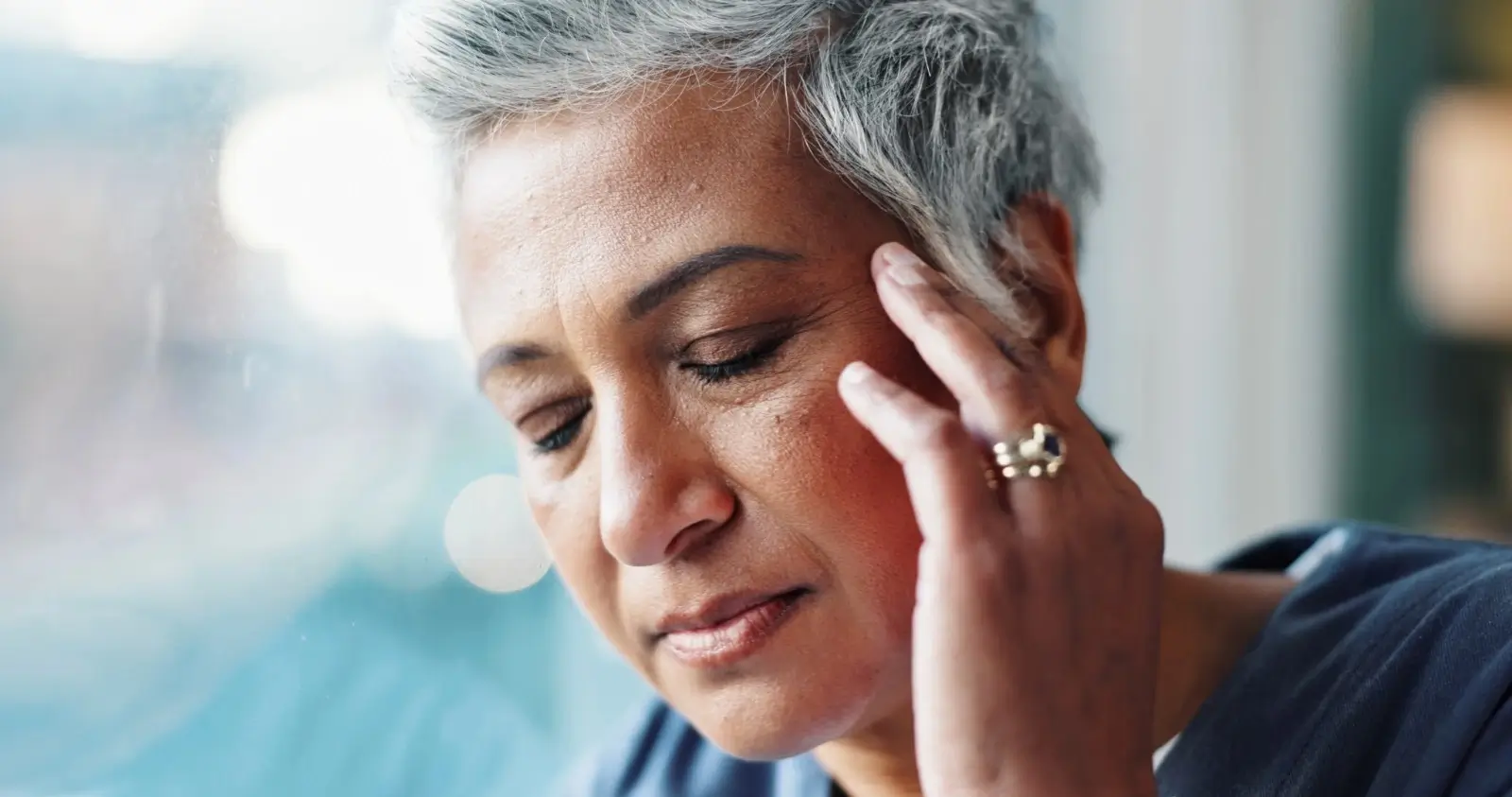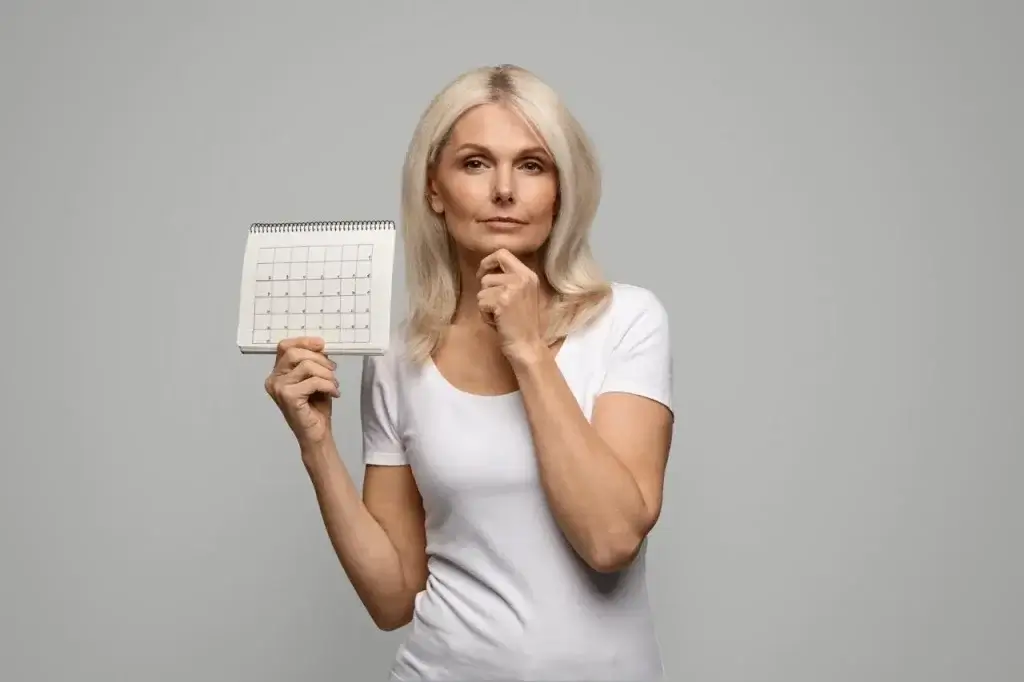

It’s a question whispered between friends, typed into search bars at 2 a.m., and quietly wondered by women as they notice small changes in their bodies. Menopause is one of life’s great transitions: natural, universal, and yet still wrapped in confusion and stigma.
Here’s the truth: every woman will experience menopause, but no two women will experience it in exactly the same way. The timing, symptoms, and impact are as unique as a fingerprint. This article unpacks not just when menopause begins, but how it begins, what signs to look for, and what to expect next, all in a way that feels less clinical, more human, and deeply supportive.
The most common age for menopause, defined as 12 months without a period is between 45 and 55. In fact, the average age is around 51 years old.
But here’s where it gets interesting: menopause doesn’t just “happen overnight.” It unfolds in stages:
Perimenopause (the transition years): This can begin in your late 30s or 40s, lasting anywhere from 4 to 10 years before menopause itself.
Menopause: Officially marked after 12 months with no menstrual cycle.
Postmenopause: The years after menopause, when symptoms may ease but long-term health considerations (like bone and heart health) become more important.
So if you’re in your early 40s and wondering, “Is this menopause already?” It may be the start of perimenopause, not full menopause.
It may surprise you, but yes menopause can begin as early as your 30s, though this is considered unusual. This is known as premature menopause or premature ovarian insufficiency (POI).
Research shows that around 1 in 100 women experience menopause before age 40. Causes can include genetics, autoimmune conditions, certain medical treatments (like chemotherapy), or no clear reason at all.
For women in their 30s facing this, the transition can feel especially overwhelming often colliding with career building, parenting young children, or life plans still unfolding. The emotional impact can be as significant as the physical one.
Yes, though rare. If symptoms like irregular periods, hot flashes, night sweats, or mood shifts appear in your mid-30s, it’s important to get checked. At this age, irregular cycles may sometimes be due to stress, thyroid conditions, or polycystic ovarian syndrome (PCOS) rather than menopause.
Doctors often recommend blood tests to measure hormone levels (FSH, estrogen, AMH) to confirm whether early menopause is the cause.
Absolutely. In fact, early menopause — menopause that begins between ages 40 and 45 happens to about 5% of women.
Many women in this stage are caught by surprise, because the cultural narrative says menopause happens “around 50.” Yet early menopause is just as real and deserves the same attention and care.
This is one of the most important and misunderstood questions. Menopause doesn’t arrive with a single clear sign. Instead, it begins with subtle changes in hormones that ripple through many systems in the body.
Here’s how it usually unfolds:
Cycle Changes First: Periods may become shorter, lighter, heavier, or more unpredictable. You may skip one month, then have two cycles close together.
Symptoms Sneak In: Hot flashes, night sweats, or sleep problems may appear. Some women notice mood swings, brain fog, or anxiety for the first time.
Physical Shifts: Skin may feel drier, metabolism may slow, or hair texture may change. Libido can dip, and vaginal dryness may occur.
Gradual Decline in Estrogen & Progesterone: These key hormones don’t drop steadily — they fluctuate wildly before declining, which is why symptoms can feel unpredictable.
Think of it less like a light switch, and more like a dimmer slowly fading over time sometimes smoothly, sometimes flickering.
Here are the most common early signs women report and what they really mean:
One of the first hints that menopause may be on the horizon is a change in your cycle. Your periods may come closer together, stretch farther apart, or vanish for a few months before suddenly returning. Flow may be lighter or unexpectedly heavy. These changes happen because estrogen and progesterone — the hormones that regulate your cycle are fluctuating wildly. Think of it as your body’s natural rhythm trying to reset itself.
Hot flashes are perhaps the most talked-about symptom and for good reason. Out of nowhere, you may feel a rush of heat spread across your chest, neck, and face, often followed by sweating or a rapid heartbeat. Episodes can last seconds or several minutes, and they can be uncomfortable or even embarrassing. While not dangerous, frequent hot flashes can affect daily comfort and self-confidence.
When hot flashes strike during the night, they often appear as night sweats — drenching the sheets and leaving you tossing and turning. Beyond the inconvenience, disrupted sleep can snowball into fatigue, irritability, and difficulty concentrating during the day. Over time, poor sleep can make other symptoms, like mood changes and brain fog, feel worse.
Misplacing your keys, forgetting a word mid-sentence, or struggling to focus on tasks — these are all common experiences during perimenopause. Often called “brain fog,” this cognitive fuzziness is linked to fluctuating hormones, poor sleep, and sometimes stress. While frustrating, it doesn’t mean you’re “losing your mind.” For most women, concentration and memory improve again as the body adjusts.
As estrogen declines, the tissues of the vagina can become thinner, less elastic, and less lubricated. This can lead to dryness, itching, or discomfort especially during intimacy. While it can feel isolating, it’s incredibly common, and solutions like lubricants, moisturizers, or local estrogen therapy can help restore comfort and confidence.
Feeling exhausted even after eight hours of sleep? Hormonal fluctuations, combined with disrupted sleep from night sweats, can create a cycle of persistent tiredness. Fatigue isn’t just physical — it can affect motivation, concentration, and mood, making everyday tasks feel heavier than usual. Gentle movement, rest, and balanced nutrition can help restore energy.
Many women notice their body shape shifting in midlife, with weight accumulating more around the abdomen. This isn’t just about diet or exercise, declining estrogen affects how fat is distributed, while metabolism naturally slows with age. While frustrating, it’s a biological reality. The focus here should shift from appearance to health: supporting metabolism with strength training, balanced meals, and stress management.
Remember: Not every woman will experience all these signs. Some move through menopause with little disruption, while others find symptoms overwhelming. The most important thing is to pay attention to changes, listen to your body, and know that support — medical and emotional — is always available.
Every woman’s journey looks different, but research gives us a general roadmap:
Late 30s to early 40s: Hormonal fluctuations may begin quietly (perimenopause). Subtle changes in cycles, occasional hot flashes, or mood shifts may appear.
Mid-40s to early 50s: Symptoms intensify. Cycles become irregular, hot flashes may be frequent, sleep can become disrupted. This is the peak of perimenopause.
Around 51 (on average): Menopause is officially reached. Periods stop completely.
Postmenopause (after 12 months without a period): Some symptoms ease, but risks for osteoporosis, heart disease, and metabolic shifts increase. Long-term lifestyle choices become especially important here.
Menopause isn’t just about biology — it’s about identity, relationships, and self-image. For many women, this time brings:
A sense of loss (fertility, youth, or predictability).
Questions about body confidence.
Strain in relationships, especially if partners or families don’t understand what’s happening.
But here’s the empowering truth: menopause can also be a new beginning. Freed from monthly cycles, many women describe feeling more confident, resilient, and self-aware than ever before.
The more you understand what’s happening inside your body, the less frightening and mysterious it feels. Learning about hormonal changes, the stages of menopause, and the variety of symptoms equips you to separate myths from facts. Knowledge also makes conversations with doctors easier and more effective, you become an advocate for your own health. Think of education as your anchor: it replaces confusion with clarity and fear with confidence.
Menopause is a natural process, but that doesn’t mean you need to “tough it out” alone. Healthcare providers can offer a wide range of solutions: from Hormone Replacement Therapy (HRT) to non-hormonal treatments, supplements, and medical checks for bone and heart health. What works best is different for each woman. The most important step is to have an open, honest dialogue with your doctor; ask questions, express concerns, and remember: seeking help is a sign of strength, not weakness.
Your daily habits can become powerful medicine during this stage. Nutrition rich in whole foods, calcium, protein, and phytoestrogens (like soy and flax) supports bone health and hormone balance. Exercise, especially strength training and cardio — helps maintain muscle, boost energy, and protect the heart. Stress management through yoga, meditation, or even a quiet walk can soothe your nervous system. And never underestimate the power of good sleep hygiene: a cool bedroom, calming bedtime rituals, and less caffeine can make restorative sleep more likely. These shifts aren’t about perfection, but about caring for your body with consistency and kindness.
One of the most healing aspects of this journey is realising you’re not alone. Sharing your experiences with trusted friends, sisters, or menopause support groups can dissolve shame and normalise what you’re going through. Hearing “me too” from another woman is profoundly comforting. Online groups such as our very own: Miror Community will provide you unconditional love, expert doctor consultations and phenomenal support along with medical assistance whenever you seek it and such wellness circles are also growing rapidly, offering safe spaces for questions, laughter, and encouragement. Connection is medicine and it reminds you that menopause isn’t isolation, it’s a shared rite of passage.
Above all, meet yourself with tenderness. Menopause is not a failure of your body; it’s a natural transition, a new season of life. Some days will feel harder than others, and that’s okay. Giving yourself permission to rest, to ask for help, and to care for your emotional well-being is essential. Celebrate the resilience you’ve built and the wisdom you’ve earned. Compassion turns menopause from a battle into a journey; one where you are not just surviving, but slowly thriving.
So, when does menopause start? For most, somewhere between 45 and 55 — but it can happen earlier, even in your 30s or 40s. The journey is personal, unpredictable, and sometimes challenging.
But here’s what you can hold on to: you are not alone. Millions of women walk this path every year, and support — both medical and emotional — is more available than ever.
Menopause may mark the end of one chapter, but it also opens the door to another: one filled with wisdom, resilience, and new ways of embracing yourself.
Yes, chronic stress, smoking, or untreated health conditions can sometimes lead to earlier menopause by affecting hormone production. While you can’t control genetics, nurturing your health with balanced food, exercise, and stress relief can support your hormonal rhythm.
Genetics play a big role, but they aren’t everything. Even sisters can have very different timelines due to lifestyle, environment, health conditions, or even cultural factors like diet and stress management.
Because hormones don’t decline in a straight line. They rise and fall like a rollercoaster before finally leveling off. That’s why you may feel fine one month and then have hot flashes or brain fog the next.
Many women describe perimenopause as “PMS on steroids.” Mood swings, bloating, or breast tenderness can feel familiar but more intense. The difference is that cycles become irregular, so these symptoms often feel unpredictable.
Yes. Even 10+ years after menopause, benign causes like polyps, infections, or tissue thinning can still be responsible. The time since menopause doesn’t automatically make it more dangerous — but evaluation is still key.


